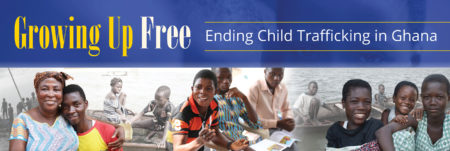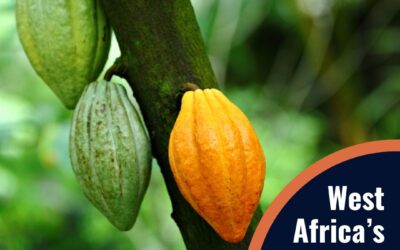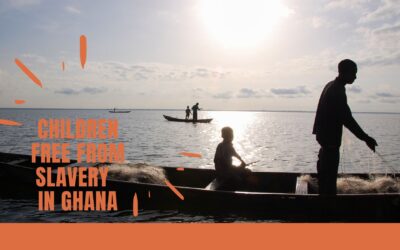The first-ever Child Protection Compact (CPC) Partnership to end child trafficking is wrapping up its fifth year in Ghana, and officials say it has been a terrific success that other countries should follow.
That assessment comes this week by officials from the Ghanaian government, the U.S. State Department, the International Organization for Migration and Free the Slaves – all partners in the CPC program.
The U.S. began CPCs in 2015 as an innovative technique for government-to-government contracts that develop integrated child-trafficking programs. Funded by the U.S. State Department, the goal is to coordinate social services, law enforcement, child rescue teams, recovery shelters, and prevention programs into a whole-of government, whole-of society effort. Ghana was the pilot for the five-year intervention scheme. Similar pacts have been started in Jamaica, Mongolia, Peru and the Philippines. A new country is added every year.
Read about the Free the Slaves Growing Up Free program in Ghana, part of the CPC, here.
Some key accomplishments from the FTS team’s work as an implementing partner in the Ghana CPC:
- 408 children rescued
- 369,705 community members trained on the rights of children
- 177 traditional leaders trained on child rights
- 473 individuals trained to develop small businesses that create economic resilience and prevent child trafficking
- 45 village savings and loan associations created so parents can borrow from a legitimate lender when necessary and not seek money by sending a child away with a trafficker
- 24 traffickers arrested
See inspiring stories of children liberated in Ghana during the Growing Up Free program here.
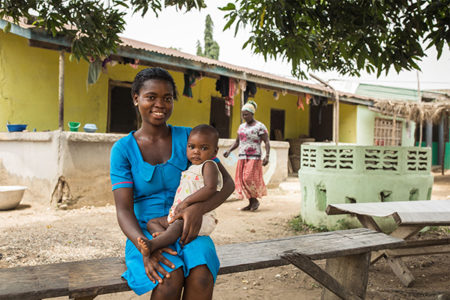
Ghanaian governmental officials noted these highlights:
- A newly-coordinated system of justice has been created
- Public awareness campaigns have been conducted through the media
- Materials have been created to communicate trafficking laws to the public in easy-to-understand graphics and handouts
The International Organization for Migration noted these highlights:
- Specialized training curricula have been created for judges, police and social workers
- Information systems for data collection to track progress have been created
- Top government officials have visited the front lines on Lake Volta to see child trafficking for themselves and speak firsthand with community mobilizers working to end the exploitation
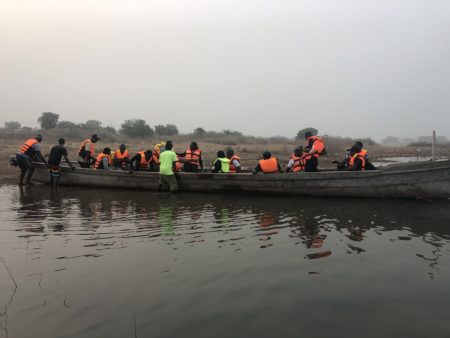
The stakeholders did identify some challenges, including that the program focused on Ghana’s fishing sector and not other industries where children are trafficked. The COVID-19 pandemic has also made field work difficult in the final months of the five-year CPC project.
But officials believe that the accomplishments of the Ghana CPC will have a lasting impact on the way Ghanian anti-trafficking teams operate in the future. Perhaps the single most important result was that Ghana was removed from the Tier 2 Watch List in the State Department’s 2018 Trafficking in Persons Report and upgraded to Tier 2 status.
What’s next for FTS in Ghana? Even though the CPC was a five-year project, the State Department has extended funding for FTS into 2021. So our teams are still on the front lines changing conditions at a community level that allow child trafficking to exist.

